Decluttering & Kids: Inspiring Kids to Live Simply
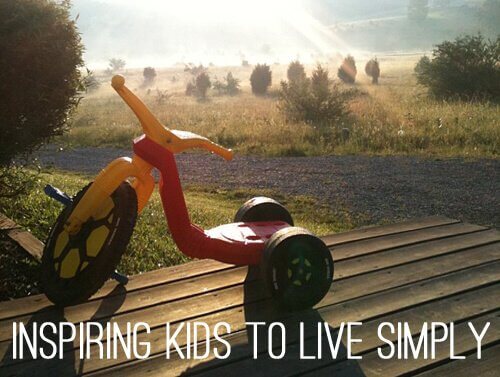
By Mandi, Contributing Writer
Even the most organized person will fall under the weight of too much stuff – a lesson I learned the hard way a few years into married life and motherhood – and instead of just inspiring my children to be organized, my goal is to show them the value of living a simple life without clutter.
I wouldn’t necessarily call us minimalists, as we don’t stick to strict rules about the number of items in our home or what we do or don’t buy; however, we are careful to only keep the things that we truly use and enjoy and to evaluate purchases through this lens before we spend money. And, yes, that means my kids have fewer toys and clothes than most of their peers, but I don’t think they’re suffering!
Because we want to pass these values on to our kids rather than have them revolt the minute they move out of our home, we’re very intentional about the way we treat “stuff,” and I want to share a few of those strategies with you today:
Keep Them Involved in Decisions
Although it’s easier to de-clutter without children underfoot, it’s important to involve children in the process. No one likes to have their stuff thrown or given away without their permission, and I still give my mom a hard time about the coloring books she threw out one year without telling me!
Most importantly, by involving kids in the process, you’re helping them develop those decision making skills as they think about what to keep and what to give away. Use these 10 decluttering questions to help encourage conversation as you go.
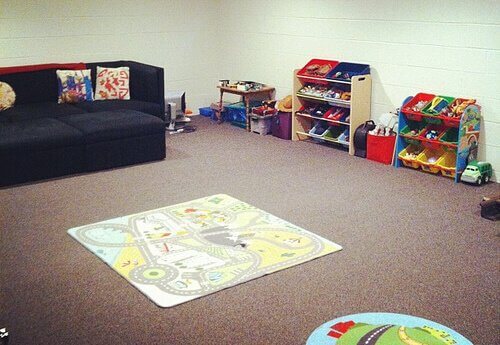
source: eyeliam
Set Objective, Physical Limits
Everyone has things they hold onto that don’t make sense to outside observers, and it’s important to give children freedom to choose special toys and knick knacks of their own — within limits.
My favorite way to give my kids freedom within a reasonable framework is to designate a box, bag or other container for specific toys. They can grow their collection of Little People, Hot Wheels or cheesy dollar store toys as long as it fits within that defined space, but once it begins to overflow, it’s time to de-clutter the extras.
This not only gives them control of the decisions so that I don’t have to play the bad guy, but it also reinforces the idea that saying yes to certain items means saying no to others.
Embrace the One Toy In, One Toy Out Rule
A strict interpretation of this rule says that whenever kids receive a new toy for their birthday, a holiday or make their own purchase, they choose one of their existing toys to give away. Because I’m not a great rule follower, we don’t follow this rule with precision (although I know families that do!). However, we always do a big clean out before Christmas to make room for any new toys, and we’ll often do one in the middle of the year as well.
We keep our toys in a defined space (smaller toy sets in a wardrobe in the play area and the bigger toys in their bedroom closet), and we are careful to limit the toys we own to what will fit comfortably in these two spaces.
Make Cleaning Up a Family Affair
Involving kids in daily clean up is a great way to give them a realistic picture of the time cost of stuff! There will obviously be times when they’ll want to keep out an elaborate Lego village they’re building or another project that’s in progress, but for the most part we clean up each evening and everybody participates. Toddlers and preschoolers are so eager to help, so we use that as an opportunity to build good habits right from the start.
I don’t expect my children to be perfect little organizing machines, and like any kid, they page through toy catalogs with wide eyes as they dream of owning every single toy. Our goal is not to force our decisions on them but to help them build good habits and give them opportunities to see the benefits of keeping our home uncluttered and neat.


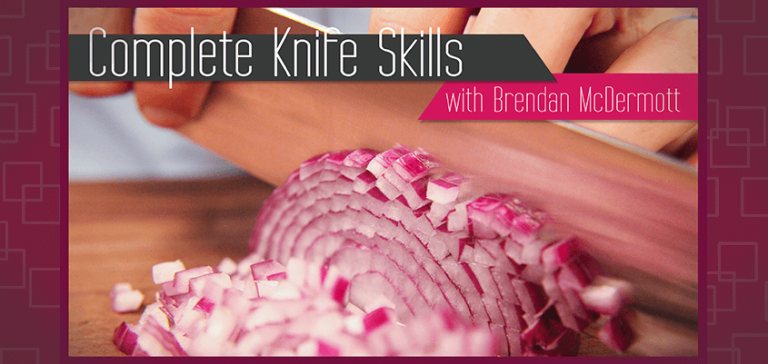
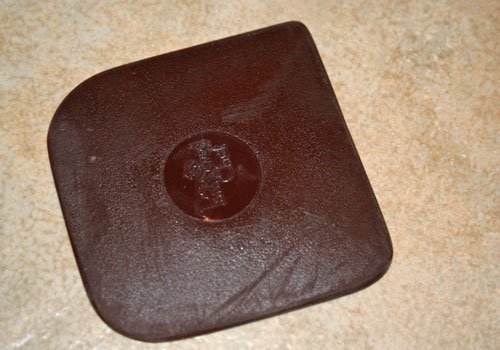
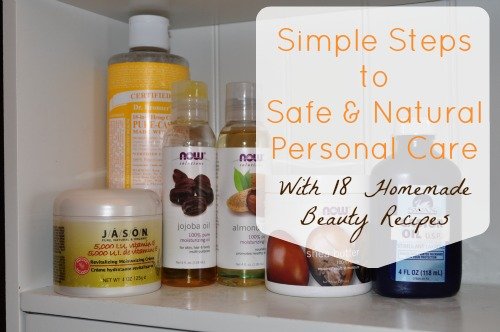
Timely post as I am about to sort out my girls “bedroom”. I particularly like the limits one. We recently moved into a van so had to seriously limit toys and clothes, it is a temporary move and we do have some stuff in storage. Before we moved I asked them to sort out say their favourite play jewellery the chose a few things then ended up wanting to keep everything. I left it a couple if days then asked them to pick 5 pieces each to keep. It worked and they happily got rid if the rest. We then carried it out with their other toys and they are starting to get it for themselves. My 7 year old said the other day ” why would anyone want more than one barbie” and is happy to pass things on. Especially if they know where they are going and that someone else will enjoy them.
Love these tips! My children are still toddlers, so right now we mainly focus on cleaning up together. I also talk to my daughter about giving outgrown or barely-used clothes to other families and donating extra toys to a local shelter. She likes the idea of sharing her things with “the other babies,” which is sweet to see.
Sounds very FlyLady. I’ve been a huge fan of hers ever since I moved out of my parent’s home. I love “cool stuff” but hate clutter, so I’ve learned what gadgets I want to keep and what to donate (and when to toss, don’t make the place you’re donating too have to sort through what they cannot keep).
We really need to de-clutter the toys. My 5 year old son has such “emotional” attachments to his possessions and is a bit obsessive. Whenever we talk about getting rid of some of his toys he doesn’t use anymore he gets so sad and melancholy. We always put a positive spin on it, like making room for new stuff or giving it to someone who doesn’t have any toys. I know he is sentimental and that is a good thing but he also seems to be overly concerned with possessions. Does anyone have any suggestions on how to handle his heart in this situation? We’ve gotta purge or get a bigger house 🙂
‘Involving kids in daily clean up is a great way to give them a realistic picture of the time cost of stuff’. Word!
I really like this, as well as the comments above. Here is where I struggle: my daughter has 5 grandmothers…my mother, both my grandmothers, my mother-in-law and my grandmother-in-law…and she is the ONLY grandchild. Trips to my mom’s or my grandma’s involve bringing home bags full of cheap dollar bin new toys and trips to my mother-in-law’s house involve bags full of JUNK purchased at thrift shops (not that all things at thrift shops are junk, they have great finds…she just doesn’t see the great finds for all the junk).
I want to implement the one toy in one toy out rule, but she wants to get rid of really quality toys (stuff that goes with her dollhouse or kitchen that I’d like to keep for future children as well) to keep something that is mostly broken and cost ten cents at Goodwill.
When approaching our families about this issue, we’re told how ungrateful we are…or my mother-in-law will say it’s an early birthday present (like eight months early). They really, truly do not care what we have to say about the matter, they continue to buy her whatever they want, 12 months of the year.
I love my family and I know they just love her so much. But she’s leaning toward a terrible attitude of entitlement. Again, I’m told that all kids are like that. I am fighting a double fight because none of the grandmas are coming at parenting from a Christian perspective so the values I’m trying to instill in my daughter are not respected by our families.
To put it in perspective, at Christmas, we spent three hours opening gifts…seventy-five percent of the time we were watching my daughter open gifts while all of us adults watched.
HELP!
I try to get my kids to clean through their things regularly, but they place a high value on everything…even things they haven’t seen in a year. Once, I made them pick out items to take to grandparents’ homes. It relieved our clutter and gave them things to look forward to when visiting. Most of it was purhased by grandparents, anyway!